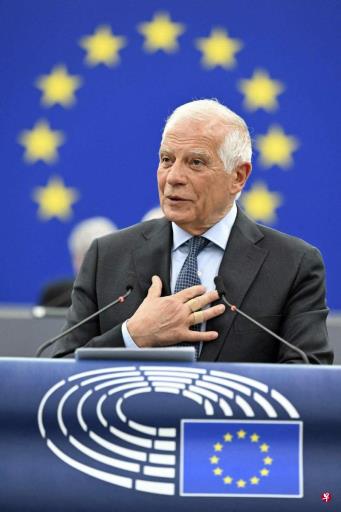
A new draft of the EU Foreign and Security Policy's senior representative Berrely said that the EU needs to cooperate with the allies to reduce the rise of China to become the risk brought by the global power, but it should not be involved in Washington and Beijing.Zero and competition between them.
The document prepared by Berley and the EU's foreign affairs department for the preparations prepared by the Foreign Minister's meeting on Friday (May 12) reiterated the strategy of the European Union's "simultaneous regard to China as partners, competitors and systemic opponents".But also said that the balance between response methods will depend on how China responds to Europe's participation.
According to the draft obtained by Bloomberg: "The European Union must consider these world ideas, the reality of deep economic entanglement, and the more tough consequences of China's internal tendency to strengthen control."
The Seventh Kingdom Group (G7) intends to make signals to China by announcing joint efforts to fight "economic coercion" this month, but it is still difficult to reach an agreement on specific measures.China will also become one of the key issues of EU leaders at the end of June.
The draft believes that the European Union needs to increase its efforts to contact other countries and put forward more attractive proposals to compete with China's increasing influence, including through free trade agreements and energy partnerships.
"However, the European Union should not agree with the idea of zero sum game, that is, there can only be one winner in the binary competition between the United States and China," said this article, "China's rise should occur in the rules -based -based rules -based basisInternational order. "
This document also called on Europe to continue contact with China because it is committed to creating a fair economic competitive environment and reducing dependence on key minerals and other fields.It warns that the European Union must be prepared to deal with any impact of Chinese actions on its society.
The file warns: "Our openness cannot become a weakness, but it should not be abolished."




